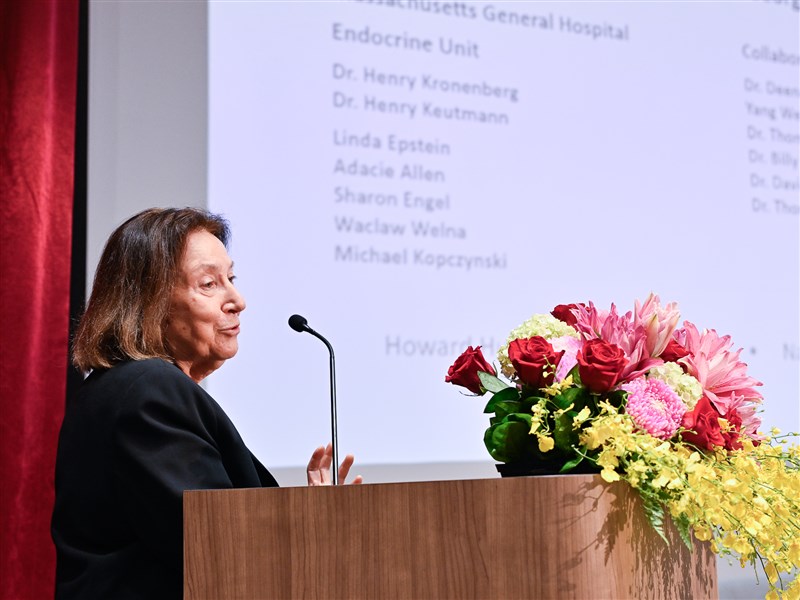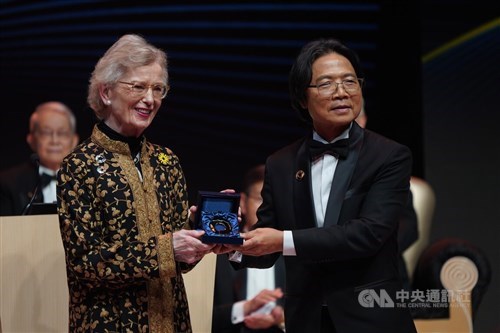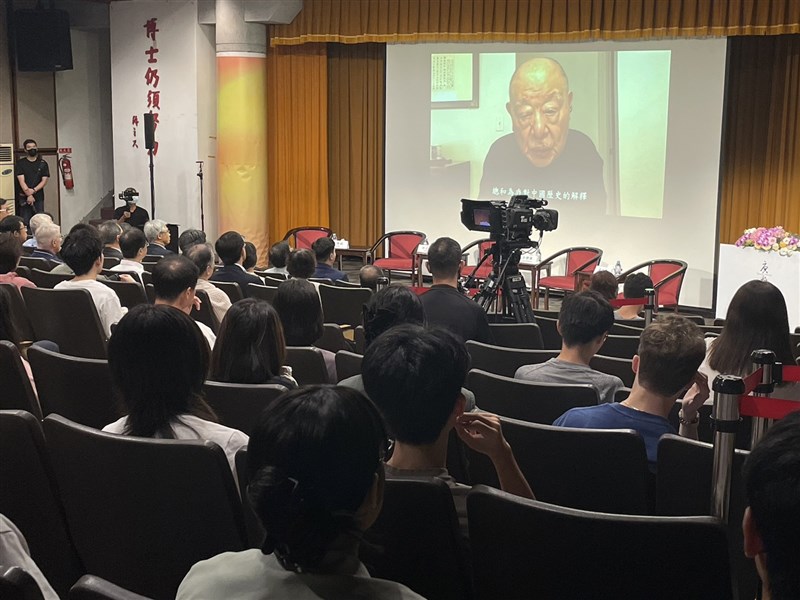TANG PRIZE/Omar M. Yaghi wins 2024 Tang Prize in Sustainable Development
06/18/2024 04:45 PM
Omar M. Yaghi has been awarded the 2024 Tang Prize in Sustainable Development for his pioneering work on metal-organic and other ultra-porous frameworks used in carbon capture, hydrogen and methane storage and water harvesting.
(Full text of the story is now in CNA English news archive. To view the full story, you will need to be a subscribed member of the CNA archive. To subscribe, please read here.)
More in TANG PRIZE
![Drugs treating diabetes, obesity can do more: Tang Prize laureates]() Drugs treating diabetes, obesity can do more: Tang Prize laureatesSvetlana Mojsov and Jens Juul Holst, two of the laureates of the 2024 Tang Prize in Biopharmaceutical Science, said at a forum in Taichung on Tuesday that the GLP-1-based drugs their research spawned could go beyond managing diabetes and obesity.10/01/2024 08:52 PM
Drugs treating diabetes, obesity can do more: Tang Prize laureatesSvetlana Mojsov and Jens Juul Holst, two of the laureates of the 2024 Tang Prize in Biopharmaceutical Science, said at a forum in Taichung on Tuesday that the GLP-1-based drugs their research spawned could go beyond managing diabetes and obesity.10/01/2024 08:52 PM![Tang Prize winner lauds Taiwan implementation of human rights covenants]() Tang Prize winner lauds Taiwan implementation of human rights covenantsFormer Irish President Mary Robinson on Monday praised Taiwan's efforts to incorporate international covenants on human rights into its domestic law despite not being a signatory.09/30/2024 08:58 PM
Tang Prize winner lauds Taiwan implementation of human rights covenantsFormer Irish President Mary Robinson on Monday praised Taiwan's efforts to incorporate international covenants on human rights into its domestic law despite not being a signatory.09/30/2024 08:58 PM![Historian shares research into ancient Chinese myth at Tang Prize forum]() Historian shares research into ancient Chinese myth at Tang Prize forumRenowned Taiwanese-American historian Hsu Cho-yun (許倬雲) on Monday said his work regarding the ancient Chinese myth Da Yu (大禹) was a successful example of integrating social science methodologies into historical research that helped him win the 2024 Tang Prize in Sinology.09/30/2024 01:52 PM
Historian shares research into ancient Chinese myth at Tang Prize forumRenowned Taiwanese-American historian Hsu Cho-yun (許倬雲) on Monday said his work regarding the ancient Chinese myth Da Yu (大禹) was a successful example of integrating social science methodologies into historical research that helped him win the 2024 Tang Prize in Sinology.09/30/2024 01:52 PM
Latest
- Cross-Strait
Taiwan military remains on alert as China says drills concluded
12/31/2025 10:05 PM - Business
Taiwan dollar rose 4.27% against U.S. dollar in 2025, highest in 5 years
12/31/2025 09:21 PM - Politics
High Court upholds acquittal of Ma Ying-jeou in KMT assets sale
12/31/2025 08:47 PM - Society
Crowds gather at Taipei 101 to ring in 2026
12/31/2025 08:28 PM - Society
Construction team begins lowering Matai'an Creek barrier lake
12/31/2025 07:54 PM


